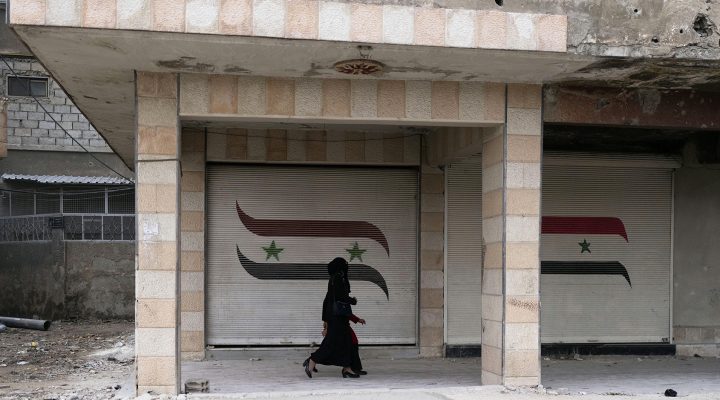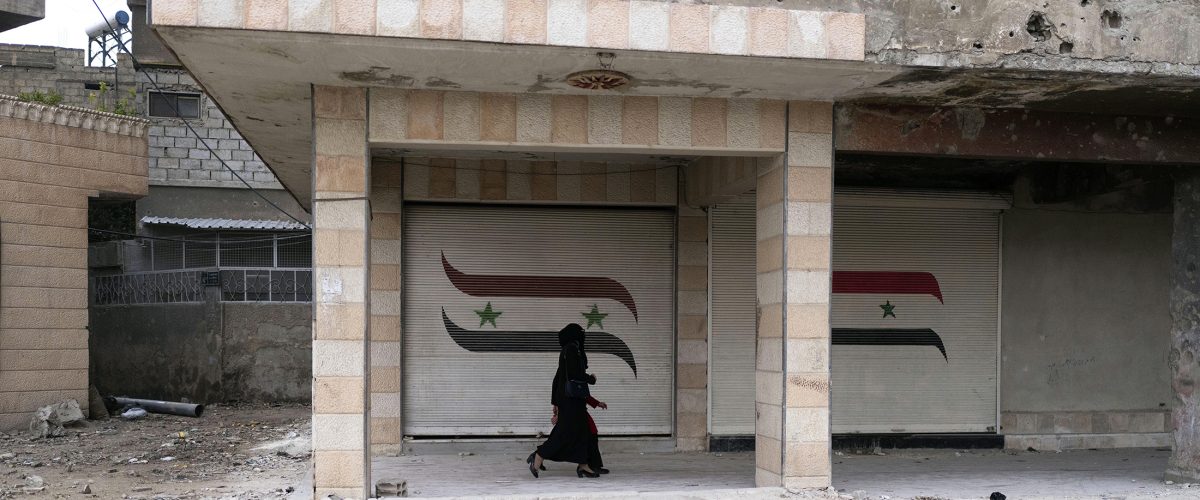The fall of a government always ushers in uncertainty, and in Syria such a transition could have profound implications for women, particularly if a more conservative Islamic regime comes to power.
Women usually get the short stick in political turmoil. This shift could affect women’s health, rights, safety and freedom in ways that demand our prayer, reflection and action as Christians. While the road ahead is fraught with challenges, the church has a unique opportunity to embody Christ’s love by advocating for and providing solutions to ensure dignity and hope for Syrian women.
Women’s health in Syria already is in a vulnerable situation, and political unrest frequently results in health care being one of the first casualties. Hospitals have been devastated by war, supply networks for necessary drugs have been interrupted, and countless women have been denied access to reproductive health services and prenatal care. Further limitations on women’s health care might make this crisis worse. According to reports from comparable Islamic regimes, women’s lives may be in danger if services like family planning and maternal health education are drastically reduced.
It is our duty as Christians to look after the ill and defenseless. As James 1:27 reminds us, “To care for orphans and widows in their distress is a religion that God our Father accepts as pure and faultless.” That biblical command applies beyond our American borders.
By collaborating with humanitarian groups to set up mobile clinics, provide medical supplies and train local health care professionals, the church can help Syrian women. These programs show God’s mercy in action in addition to saving lives.
“In many conservative Islamic regimes, women’s rights are curtailed under the guise of religious law.”
In many conservative Islamic regimes, women’s rights are curtailed under the guise of religious law. Syrian women, who historically have enjoyed relatively high levels of education and participation in public life, could face a reversal of these gains. Policies requiring strict dress codes, restrictions on mobility and exclusion from the workforce are possibilities. These measures would not only rob women of their autonomy but also hinder the economic and social development of Syrian society as a whole.
The Bible speaks to the intrinsic worth and equality of all people. Galatians 3:28 declares, “There is neither Jew nor Gentile, neither slave nor free, nor is there male and female, for you are all one in Christ Jesus.” The church must advocate for the preservation of women’s rights in Syria by amplifying their voices on international platforms and engaging in dialogue with policymakers. Supporting educational programs and legal aid services can empower Syrian women to stand against oppression and claim their God-given dignity.
For many Syrian women, the threat of violence is an ever-present reality. War has brought with it sexual violence, forced marriages and human trafficking. A more restrictive regime could further endanger women by codifying their subjugation and turning a blind eye to abuse. Women may find themselves confined to their homes, unable to seek help or escape dangerous situations.
In Proverbs 31:8-9, we are called to “speak up for those who cannot speak for themselves, for the rights of all who are destitute. Speak up and judge fairly; defend the rights of the poor and needy.” The church can play a pivotal role by establishing safe havens and shelters for women fleeing violence. Christian organizations can work to raise awareness, provide trauma counseling, and support rehabilitation programs for survivors of abuse. These acts of love and justice reflect God’s heart for the oppressed.
“We all are Hagar; we all are Syrian women today.”
While all this potential human need seems very far away, there are things we can do collectively as the church and things we can do from afar. Here are some other examples:
- Advocacy and awareness: Christian leaders and organizations can use their platforms to shed light on the plight of Syrian women. Advocacy campaigns can mobilize believers worldwide to pray, donate and pressure governments to support women’s rights in Syria.
- Humanitarian aid: Churches can partner with international relief agencies to provide food, shelter and medical care to displaced and vulnerable women. This tangible expression of God’s love can offer hope in the darkest of circumstances.
- Education and empowerment: Supporting initiatives that educate women and girls can break the cycle of poverty and oppression. The church can sponsor schools, vocational training programs and literacy campaigns to equip Syrian women for a brighter future.
- Prayer and spiritual support: Finally, the church must commit to sustained prayer for Syrian women. Let us pray for their protection, for wisdom among leaders, and for the gospel to bring healing and transformation to Syria.
While the challenges facing Syrian women are daunting, we serve a God who specializes in redemption. The story of Hagar in Genesis 16 reminds us God sees the plight of oppressed women. Hagar, an Egyptian servant mistreated by her masters, fled into the wilderness. There, she encountered “El Roi,” the God who sees. In the same way, God sees every Syrian woman suffering in silence, and God calls the church to be the hands and feet of Jesus.
We all are Hagar; we all are Syrian women today.
Jesus said, “Truly I tell you, whatever you did for one of these least of these brothers and sisters of mine, you did for me.” Let’s keep that in mind. We demonstrate the transforming power of Christ’s love by standing with Syrian women. By working together, we may contribute to the creation of a future that reflects God’s kingdom on earth and in which Syrian women thrive in terms of independence, dignity and health.
Rosaly Guzman is a teacher, speaker and life coach. She holds a master’s degree in theology and is working on a doctoral degree in ministry. She serves at Crosslife Church in Oviedo, Fla,, in the women’s ministry.



